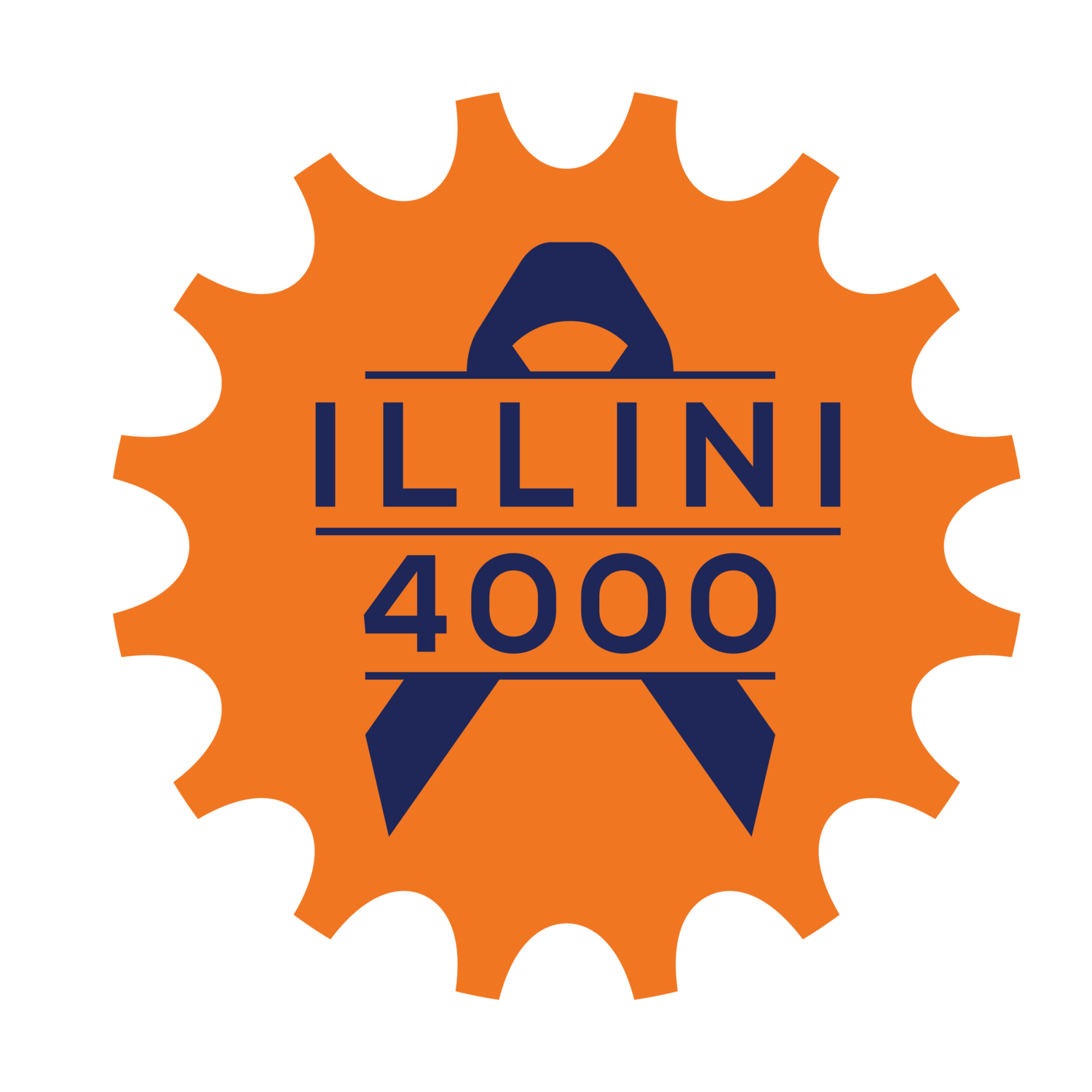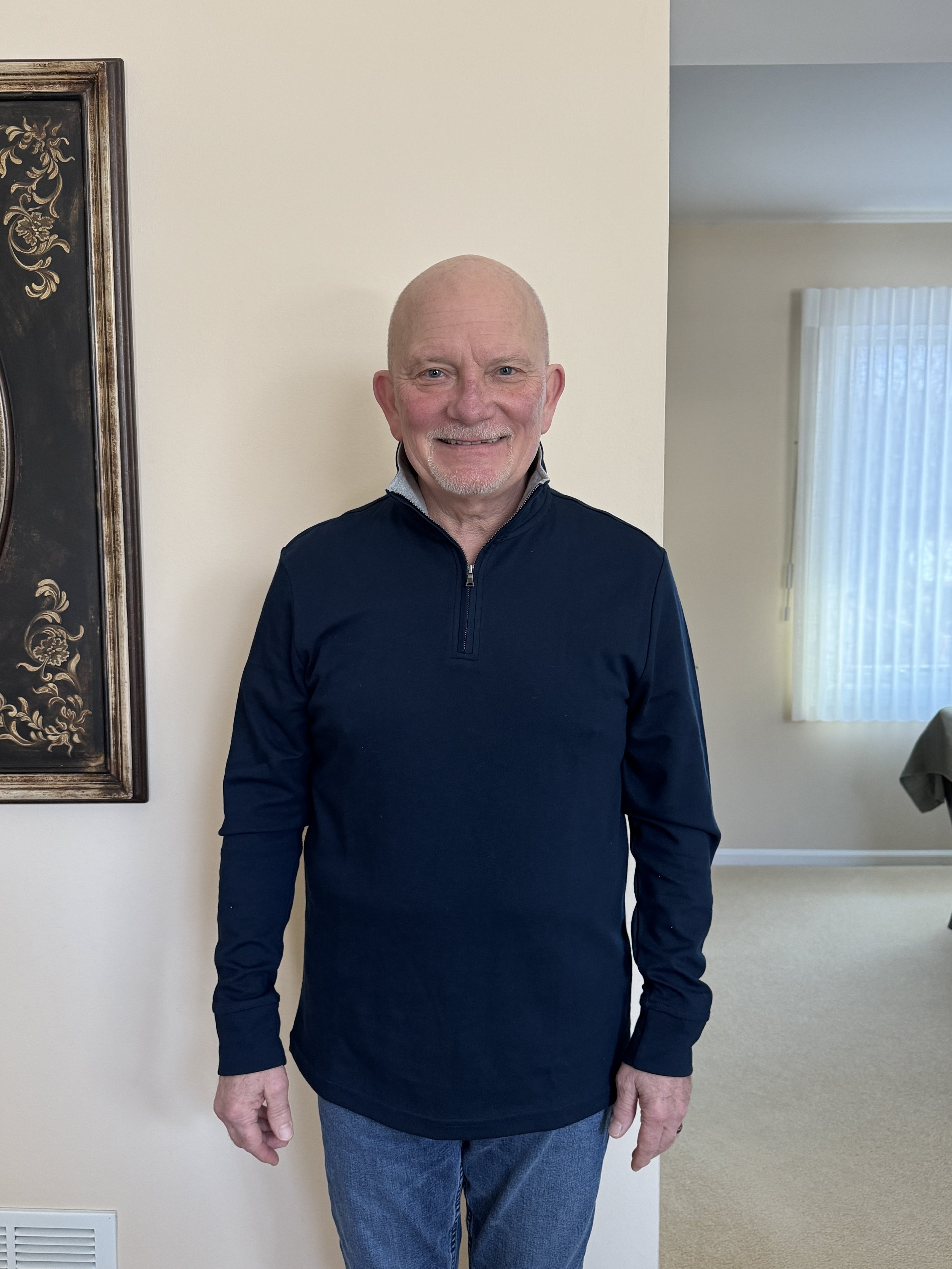Timothy Sashko
Cancer Survivor
MUNDELEIN, IL
Biography
Tim Sashko recounted his cancer journey, which began on November 17, 2020, when he experienced involuntary arm movements. Initially diagnosed with a hemorrhagic brain tumor, he underwent surgery on November 19, 2020, at Evanston Hospital. Post-surgery, he was diagnosed with stage four melanoma, a rare occurrence where melanoma metastasizes to the brain. He received immunotherapy and radiation treatments, which were effective in stabilizing his condition. Despite the challenges, Sashko emphasized the importance of maintaining a positive attitude, trusting the medical system, and continuing with normal life activities as much as possible.
Diagnosis and Initial Symptoms
My right arm started raising up on its own, and I would push it back down and raising it up on its own. I initially dismissed it as stress-related, but I decided to seek medical attention after a busy day of client appointments. I had a professional relationship with Senator Mark Kirk, who had a similar experience with stroke symptoms, which prompted me to seek immediate medical help. I called my primary care physician via telemedicine, and "we were right in the midst of COVID, as everybody remembers, we were probably what really six months into it, at that point in time, since it started early in 20… I jokingly said, “I can I go tomorrow? You know, because I got a lot of appointments with my clients today." But the doctor looked at me very stern. He's like, “we're not going to have this conversation.” And off I went to Highland Park hospital.
Surgery and Unexpected Diagnosis
When I arrived at Highland Park Hospital, they did a CAT scan of my brain, and I remember a neurologist walking back in. It wasn't the emergency room physician. There happened to be one on call, and he said, 'I've got good news and I've got bad news.” And I said, “Okay, I'll take it either way, whatever you want to do.'" The bad news was that "you have a hemorrhagic brain tumor, and you're not going home. You're going to be in surgery tomorrow morning." I looked at my wife, and I'm like, “oh boy” and it really it was kind of weird, because it didn't scare me that much. I'm like, “Okay, this is the card you're dealt. There are no choices on this.” I was then transferred to Evanston Hospital in an ICU ambulance. Having been a former paramedic, I'm like business as usual. I had felt fine at that point in time, and all my symptoms had settled down. Then the news came on Tuesday that they had done the biopsy and everything and that I had stage four melanoma, which is, you know, born from skin cancer. So that was when the journey really began. And the reality of the AHA part of this thing, it was like, “oh, no, you're kidding me.” You know, I'm all excited that this is pretty much going to be beyond me. And now I start this whole new journey.
Treatment and Recovery Journey
They immediately scheduled me to get one radiology treatment, and they have to fit you with this custom mask over your head, and it's got all the identifiers on it looks like a hockey mask, a goalie, hockey mask. I was responding to it very well. I was lucky enough to be blessed to have the outcome I did. And I kept such a positive attitude. I think we also forget about the environment that a lot of these nurses and doctors are in. They're dealing with very, very life threatening and life ending situations for a lot of people and I always felt it was my responsibility that if I got this thing in check, at least for the time being, and I was reacting very well to the immunotherapy that part of my responsibility was to always be in a good mood and uplifting around them. I don't think they always get that kind of a day. They're dealing with some very difficult situations. I think that's the other reality check, is when you walk in to the Kellogg Cancer Center at Highland Park hospital, you see a lot of that, and you're surrounded by it, and you think that's there every day. You know, they're always seeing, probably, a very negative environment, so how much does that pressurize them? you know, with the stressors that come with that.
The good news about the immunotherapy is that within a matter of about three or four treatments the inflammation on my lymph node and the one spot in my lung both disappeared. I went through MRIs and CT scans from my pelvis up to my neck and the news kept coming back great, great, great. So after two years of the treatment, they finally said, Okay, we think we're going to take you off of this. The odd thing that comes out of a situation like this is I have 100,000 mile checkup every like 5000 miles. When you look at how much testing and follow up, I go through, I have so many new doctors, and they're all great. We're really lucky in this area, being in the suburbs of Chicago and the enriched medical society that we have. I could have gone to many other places, but I just landed in just the most perfect team in the world.
Reflections and Family
It's really weird. I think for both my sons, I found out that it, you know, the diagnosis was a shocker, like a couple times for him. I went through surgery and they went through the same thing I did, from a standpoint of– and my wife too for that matter– we thought this was done and over with a the successful surgery, and then you find out there's a part two to it that's probably more significant than the surgery was, in some respects. They're both in the Fire Services paramedics, so they both are there on somebody's worst day, kind of a situation, and I think there's parts of them that are just inherent to doing that job, that they weren't showing their emotion as much. My wife had to deal with, first, her husband in that career all his life and now her sons are in that career. I think that it was kind of like very balanced, and all of us were in a state of shock long enough that the news just got better and better and better. It wasn't like some people who are faced with cancer that they get told that they have six months to live or a year to live. I think us not facing that, it calmed it down a lot, because the news kept becoming better and better and better.
ADvice
I believe that positive attitude is really, really important. And the only thing I haven't figured out, and I've talked to people at Kellogg's Cancer Center support group at Highland Park hospital, which I haven’t gotten involve with because how do you share that? Getting your head around ‘you can beat this, you have to trust the medical system.’ In the early days of cancer, it used to be, you know, start getting your life in order, because the end is coming here. I'm a realist, none of us get off of this earth alive, right, as the old saying goes, but try to remain as positive as you can because it is a very powerful. The power of faith, the power of that positivity. Trust the fact that there's these innovations coming around the corner all the time, and you have to look to that.
Then the other thing is lifestyles. I think that it causes you to look back. I mean, we're healthy eaters and things like that, but it causes you to pay attention to that a little bit more about what you're doing and how you are taking care of yourself. But keeping that focus and trusting the system is probably the most important thing to do, and to make sure that you’re sharing. The doctors and nurses want to hear everything that you're saying, and that group of doctors they're built that way. There's something about them that is special, and they know how to manage that the way they do. So I hate to be cliche, but the stiff upper lip of just staying positive is really important. Really important.
“I do not live in fear.”


